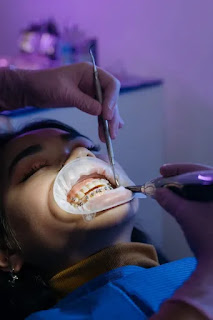Dental Extraction - What You Should Know Before Undergoing This Procedure
A dental extraction is a procedure where a tooth is removed from the dental alveolus. It can be done for a number of reasons, but the most common reason is tooth decay. This procedure can help you avoid more serious dental problems down the line. Before you have this procedure performed, be sure to ask yourself a few questions.
Do's and don'ts
While tooth extraction is usually a fairly straightforward procedure, there are some important things to remember afterward. Patients should avoid certain activities and keep their mouths as still as possible. While many patients feel a rush to return to their normal activities after dental extraction, it is essential to allow a few days for the wound to heal.
Most patients have never had surgery before, so undergoing a tooth extraction is often their first experience. Once the anesthesia wears off, they will be given pain medication to help them recover. It is important to take pain medications as directed, and not skip a dose.
Avoid things
Avoid hard or chewy foods or liquids for 24 hours after the procedure. These will encourage bleeding and delay the healing process. You should also avoid smoking or using tobacco products. Smoking can also delay healing and can lead to infection of the gums.
Pre-operative care
Before undergoing any dental procedure, it's important to get a pre-operative checkup from your doctor. If you have a history of allergies, you should inform your doctor before the procedure. You should also make sure your dentist is aware of any medications you're taking. These medications may affect the healing process, so your doctor may need to adjust your dosage.
During the first 48 hours after dental extraction, you may experience some pain and swelling.
This is normal and is not life-threatening. Bruising and slight elevation of the temperature may also occur. This is temporary and will diminish with time. After the procedure, it's important to keep the area moist and take any prescribed medications. If you're given ice packs, use them as directed.
The first 24 hours after a dental extraction are crucial for the recovery process. You should continue to practice good oral hygiene. This will help keep the tooth socket moist and prevent bleeding. If it's difficult to brush your teeth, moist tea bags may be helpful. You should also keep your mouth clean with water-filled gauze to reduce bleeding after the procedure.
Recovery time
The recovery time after dental extraction varies, depending on the type of procedure. Simple tooth extraction may take three to four days, while impacted teeth may require up to a week. Once the extraction site is healed, you should be able to resume your normal activities. You should follow the aftercare instructions provided by your dentist to ensure a fast recovery. For example, don't drive after the procedure, and avoid brushing your mouth for at least 3 hours afterward. It's also important to take pain medication as recommended. If you skip a dose, your recovery may be delayed.
Some individuals may have stitches placed in the mouth to prevent infection, but these should dissolve on their own. You should also follow any instructions provided by your dentist about physical activity and what kind of foods to avoid. You may be prescribed an antibiotic to help with your recovery. After a week, you can go back to work or resume normal activities. You may also be prescribed prescription pain medication to help you deal with your pain. If you experience nausea, be sure to discuss the side effects of your medication with your doctor. You may also need to take time off from work if you perform physical activity in your job. If you need to work during recovery, discuss your needs with your employer and follow their instructions.
Cost
The cost of dental extraction varies according to the type of procedure required. Simple extractions can cost as little as $150, while more complex procedures can cost as much as $2,250 or even $3,500. The cost of dental extraction also varies depending on the type of anesthesia used. Some dentists also offer payment plans for those without dental insurance.
If you have dental insurance, the procedure should be covered by your plan. Many companies have a six to a 12-month waiting period before they cover these dental procedures, so it is important to check with your plan. In addition, some dental clinics offer payment plans and discounted membership plans. These can make the cost of dental extractions more affordable.
If you have an impacted wisdom tooth or a broken tooth, you may need to get it extracted surgically. In this case, you will require general anesthesia, a day off from work, and possibly pain medication.




Comments
Post a Comment